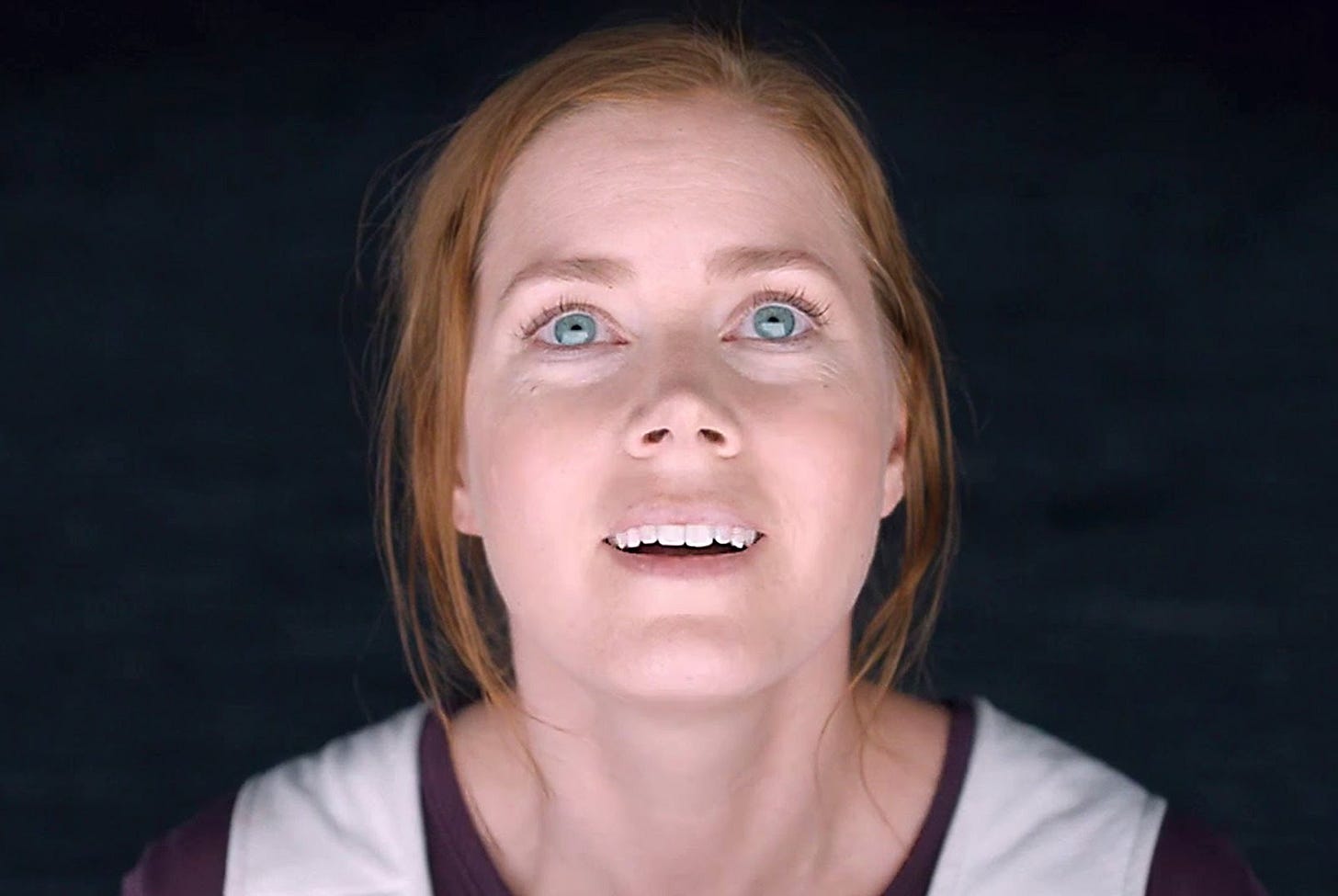What I'm Watching, Reading, and Listening To
Also, an Donald Trump F**k Up Watch Update; a fulsome weekend reading list for and a particularly eclectic Musical Interlude!
I’m Michael A. Cohen, and this is Truth and Consequences: A no-holds-barred look at the absurdities, hypocrisies, and surreality. If you were sent this email or are a free subscriber and would like to become a paid subscriber, you can sign up here.
If money is tight or you’re already up to eyeballs in subscriptions, here’s another idea — share this article. Email it to a friend (or even an enemy). Post it on Facebook, Twitter, or LinkedIn. Text or email it to your wife, husband, mother, father, brother, sister, or even your creepy second cousin who lives in Florida. Word of mouth is often the best way to build support for a creative endeavor, so if everyone here sends it to just one person … it would be much appreciated.
I’ll get to Trump soon, but there are a few quick diversions.
Last night, I rewatched the sci-fi thriller “Arrival.
When I first saw the film in 2016, I thought it was one of the most beautiful, life-affirming movies I’d ever seen. I don’t want to give away too much for those of you who haven’t seen it, but at the time, my children were two and four, and the movie’s message about the beauty of life, in all its complications and agonies, deeply resonated with my new status as a father.
Watching it again and knowing in advance the twist that comes two-thirds of the way through the film, which upends much of what came before, didn’t diminish my affection. Arrival is a gorgeous and profound work of art that asks big (and difficult) questions — and left me a blubbering mass of tears when it concluded. It challenges its audience to consider what we would do if we could simultaneously perceive the past, present, and future. Would we make the same choices, knowing the intense pain that inevitably accompanies moments of joy and fulfillment?
“Arrival” is an unsentimental reminder that suffering and heartache are integral parts of the human experience, but they are balanced by intense happiness — and that life is to be lived fully, unapologetically, and joyfully. The “choice” made by the main character, Louise (played beautifully and with extraordinary subtlety by Amy Adams), is not an easy one — and I imagine that more than a few people who watched this film were aghast at her decision.
I suppose it’s the difference between believing the good balances out the bad rather than the bad outbalances the good, but perhaps that’s an oversimplification. I came away from “Arrival” reminded, profoundly so, of the fundamental beauty and uncertainty of the human experience.
Anyway, if you've seen the film, I’m curious to hear your thoughts. If you haven’t, watch it this weekend and let me know what you think!
The Escape Artist
Last night, I also finished Jonathan Freedland’s “The Escape Artist” (it was a busy night!). It tells the story of Walter Rosenberg/Rudlof Vrba, one of only a handful of individuals who escaped from Auschwitz.
On one level, “The Escape Artist” is one of the most gripping and challenging Holocaust books I’ve ever read.
I’ve traveled to Auschwitz and other Nazi concentration camps, so I understand better than most the horrors that took place there — and the logistics of mass extermination. But Freedland finds a way to tell the story in a way that is beyond harrowing. He writes in vivid and traumatizing detail of the gassings that took place at Auschwitz, the frenzied efforts at escape that left bodies piled up at the entrances while elsewhere in the death chamber, parents clung desperately to their children in the last moments of life. An anecdote of a Nazi SS officer spitting on doomed Jews as the Zyklon-B gas that took their lives was poured into the gas chamber left me so shaken that I had to put the book down for several days. Even more searing is the re-telling of arrival at Auschwitz, when European Jews tumbled out of transports, and the vast majority were selected for immediate death. In Rosenberg’s view, had the Jews known the fate that awaited them at Auschwitz, they would have fought back and resisted. It is this belief that motivates him to escape the death camp and recount the details of what is taking place at Auschwitz (which he memorized in stunning detail) to the world.
But after Rosenberg/Vrba escapes Auschwitz, he is primarily met with indifference about the revelations that the Nazis were systematically exterminating the Jews of Europe. In particular, his efforts to warn Hungary’s Jews (the last major Jewish community to be rounded up by the Nazis and murdered) fell on deaf ears, even from his fellow Jews.
It’s hard to imagine that a story like this could in any way be life-affirming. Still, Freedland pulls it off in the end, reminding us not of the millions of lives needlessly lost but of the millions “too numerous to count” who were ultimately saved by Rosenberg/Vrba’s courage and determination.
“The Escape Artist” is not an easy read, but I cannot recommend it highly enough.
Any recommendations on what I should read next?
Donald Trump F**k Up Watch
Oh good god …
President-elect Donald Trump on Thursday picked Robert F. Kennedy Jr., an anti-vaccine activist who dropped out of the 2024 presidential race and endorsed Trump, to lead the Department of Health and Human Services.
Make Polio Great Again!
Keep reading with a 7-day free trial
Subscribe to Truth and Consequences to keep reading this post and get 7 days of free access to the full post archives.


